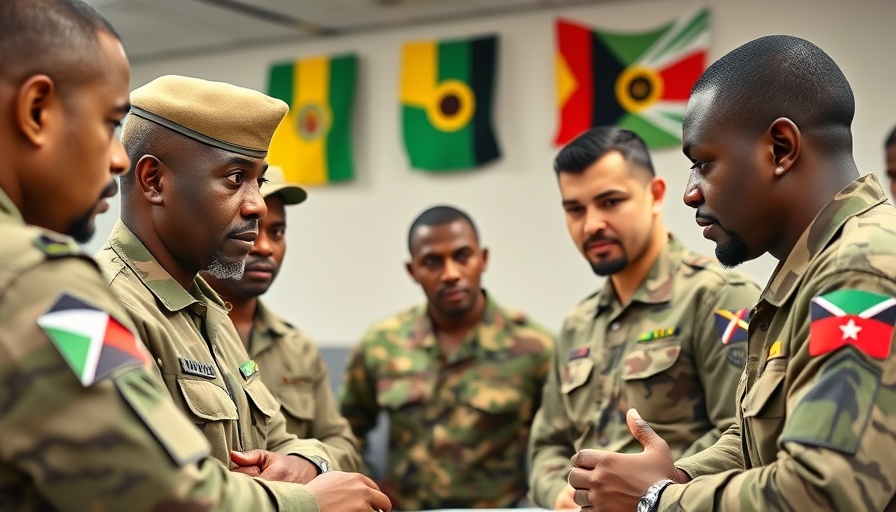
The Evolving Military Dynamics in Africa: A Strategic Imperative
As tensions escalate in the eastern Democratic Republic of Congo, Rwanda has extended a critical lifeline to Southern African troops. This decision, aimed at facilitating their passage to Tanzania for operations against armed groups, reflects a changing landscape in regional security dynamics. The collaboration signals not only Rwanda's military strategy but also highlights the interconnectedness of African nations in addressing common threats.
The Role of Regional Cooperation
This unprecedented move can be seen as a response to the perennial instability in the region, underscoring the importance of cooperation among African nations. As Rwanda allows transit for the Southern African Development Community (SADC) forces, it brings to light a collective regional commitment to improving security and stability. This cooperation might pave the way for joint operations in the future, promoting a shared vision for peace.
Potential Implications for South Africa
For South Africa, a key player in the SADC, this development could have far-reaching implications. It opens avenues for enhanced military collaboration and intelligence-sharing between countries facing similar threats. Observers are keenly watching how South Africa will respond to this opportunity, which could redefine its strategic posture in the region, fostering deeper security alliances.
Regional Stability as a Global Concern
The implications of this agreement extend beyond mere regional politics. Global powers have vested interests in the stability of the DRC due to its vast mineral wealth, which plays a crucial role in supply chains worldwide. The involvement of southern African forces may signal to international stakeholders a new era of responsibility-sharing in maintaining peace and order, thereby attracting economic investments in the affected regions.
Diversity of Perspectives on Military Interventions
While some experts support the idea of a united military front in Africa, others caution against the implications of external involvement. Concerns over African sovereignty and potential escalation of violence are valid points of contention. This discourse reflects a broader debate on how best to deal with intra-continental conflicts — whether through diplomacy or military might.
Conclusion: Navigating Complex Waters Ahead
The development of Rwanda permitting Southern African troops to transit serves as a stirring reminder of the complexities involved in African politics and the role military interventions play in resolving regional concerns. Executives, analysts, and decision-makers should keep a close watch as these events unfold, as they could alter not just regional dynamics, but also create opportunities for dialogue and investment as nations unite around shared challenges.
 Add Row
Add Row  Add
Add 




Write A Comment